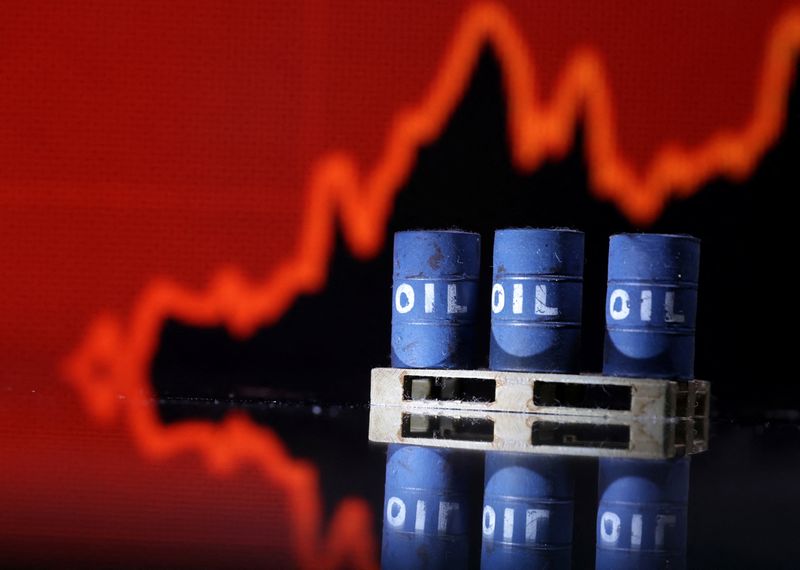By Colleen Howe
BEIJING (Reuters) – Oil prices fell on Monday as Asia opened, led by a renewed focus on market fundamentals, as Israel and Iran played down the risks of an escalation of hostilities in the Middle East after Israel’s seemingly modest strike against Iran.
Brent crude futures fell 54 cents, or 0.6%, to $86.75 a barrel by 1218 GMT.
The U.S. West Texas Intermediate (WTI) front-month crude contract for May, which expires on Monday, fell 12 cents to $83.02 a barrel. The more active June contract fell 47 cents, or 0.6%, to $81.75 a barrel.
“Economic concerns are once again becoming a bearish factor in the crude market,” with prices “under pressure due to a large buildup in U.S. inventories and a hawkish Fed that has led to a strong dollar,” the analyst said. independent marketer Tina Teng.
Chicago Federal Reserve President Austan Goolsbee on Friday became the latest central banker to signal a longer timetable for interest rate cuts as progress on inflation had “stalled.”
U.S. crude inventories increased by 2.7 million barrels, according to Energy Information Administration data released last week. This increase represents almost double the expectations of analysts who predicted an increase of 1.4 million barrels.
Last week, both oil indexes posted their biggest weekly losses since February after Iran downplayed reports of alleged Israeli air retaliation on its territory and said it had no plans to respond . Prices fell following this news, after initially rising to more than $3 per barrel.
On Saturday, the US House of Representatives passed an aid package to Ukraine and Israel containing measures that would allow the federal government to expand sanctions against Iran and its oil production. But the markets ignored this news, because the impact of these measures, if adopted, would depend on how they were interpreted and implemented.
Senate consideration of the bill is expected to begin Tuesday.
Iran is the world’s third-largest producer in the Organization of the Petroleum Exporting Countries (OPEC), according to Reuters data. Despite a wide range of existing US sanctions, its oil shipments have increased due to demand from China and networks outside the US financial system.
ANZ analysts said in a note that volatility in the Middle East would keep oil markets “nervous”.
On Saturday, an explosion at an Iraqi military base killed a member of the security forces that include Iran-backed groups. The force commander said it was an attack while the army said it was investigating.
Separately, on Sunday, the Iranian-backed Lebanese group Hezbollah said it had shot down an Israeli drone that was on a combat mission in southern Lebanon.
Israeli forces and the Lebanese armed group Hezbollah have exchanged fire for more than six months alongside the war in Gaza, fueling concerns of a further escalation.
(Reporting by Colleen Howe; Editing by Sonali Paul)



